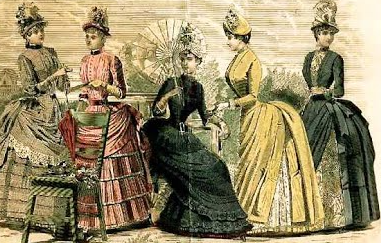Jane Eyre’s Critique of Victorian Society
In the realm of classic literature, “Jane Eyre” stands out not only as a tale of romance and personal growth but also as a powerful critique of Victorian society. This novel, penned by Charlotte Brontë, delves into themes of social class, gender roles, and morality, providing readers with a snapshot of 19th-century England’s complexities. Understanding this critique can deepen our appreciation for both the characters and the era they inhabit.
The Role of Gender in Victorian Society
One of the most poignant critiques in “Jane Eyre” is its exploration of gender roles and expectations. Women in Victorian society were often confined to domestic spheres, expected to be obedient wives and mothers. Jane Eyre, however, challenges these norms by seeking independence and self-respect. Her journey highlights the restrictive societal standards imposed on women and underscores the importance of female empowerment. Through Jane’s defiance of traditional gender roles, Brontë advocates for a woman’s right to autonomy and self-fulfillment.
Class Distinctions and Social Injustice
Another significant aspect of Brontë’s critique is her examination of class distinctions. The novel presents a stark contrast between different social classes, particularly through Jane’s interactions with characters like Mr. Rochester and Helen Burns. Jane, as an orphan and governess, occupies a liminal space—she is educated yet devoid of wealth and social status. Brontë uses these interactions to expose the injustices prevalent in a class-structured society. Jane’s resilience in the face of adversity serves as a testament to the human spirit, challenging the very foundations of social hierarchy.
Moral and Ethical Concerns
Beyond gender and class, “Jane Eyre” delves into moral and ethical dilemmas that were prominent during the Victorian era. The novel raises questions about love, integrity, and the responsibilities that come with power. Mr. Rochester’s initial deceit and the moral conflict it creates ultimately force both him and Jane to confront their values. Brontë’s portrayal of these conflicts encourages readers to reflect on their own moral choices and the impact of societal expectations on individual integrity. This exploration of ethical issues is as relevant today as it was in the 19th century.
Conclusion
“Jane Eyre” remains a vital critique of Victorian society, prompting readers to examine the complexities of gender roles, class distinctions, and moral dilemmas. Charlotte Brontë’s insights continue to resonate, inviting us to consider our own societal norms. By engaging with this classic novel, readers can uncover not only the struggles faced by its characters but also the ongoing conversation about personal autonomy and social justice. Dive deeper into this literary gem and explore how its themes can enrich your understanding of both the past and the present.
